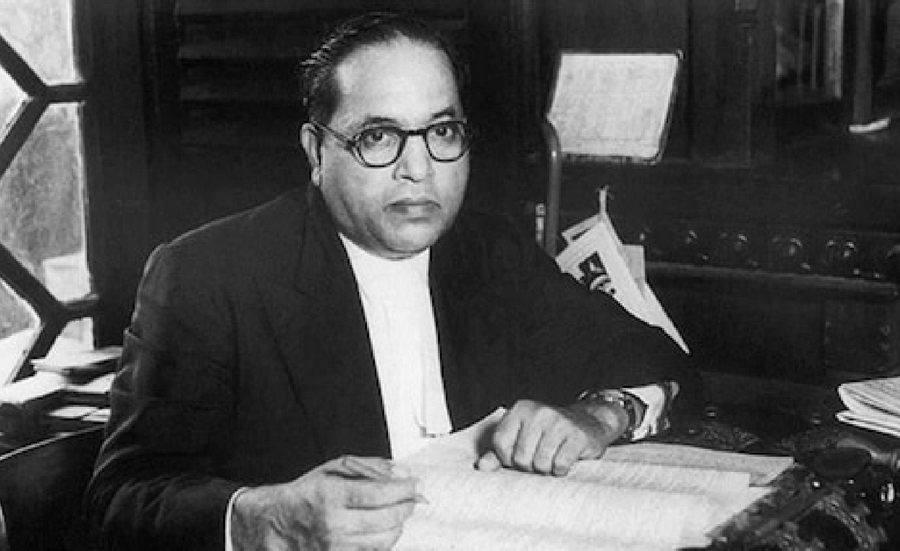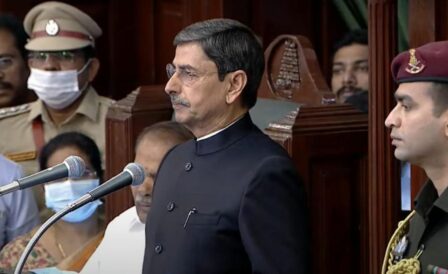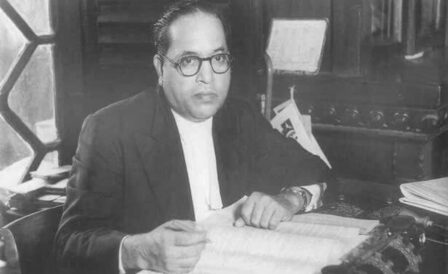
In 1919, a New York State Court judge felt strange that a ‘…a young man, 29 years of age, of intelligence, a striking example of the educational system of this country, able-bodied, of full intellect’ advocated for communism1. The ‘young man’ was Benjamin Gitlow, the co-founder of the Communist Party of America.
The New York State Court convicted Gitlow of criminal anarchy for publishing copies of the Left-Wing Manifesto in 19191. Among other things, the manifesto emphasized the necessity of accomplishing the ‘Communist Revolution’ by militant and ‘revolutionary Socialism’. The Appellate Division and Court of Appeals (New York) upheld the lower court decision.
The matter then reached the U.S. Supreme Court. The Court upheld the conviction2, and conspicuously held that the freedom of speech under the U.S. Constitution was not absolute.
28 years later, the Gitlow case found its way into the framing of India’s Constitution. On 4 November 1948, B.R. Ambedkar was faced with criticism from his Constituent Assembly colleagues: why were there restrictions on fundamental rights in the Draft Constitution? Some Assembly members felt that the restrictions effectively nullified the rights and claimed that freedom of speech in the U.S. was real since it was not restricted. Ambedkar rebuked this comparative point stating that ‘it is wrong to say that fundamental rights in America are absolute’ and quoted from the Gitlow judgment:
The matter then reached the U.S. Supreme Court. The Court upheld the conviction, and conspicuously held that the freedom of speech under the U.S. Constitution was not absolute. Share on X‘It is a fundamental principle, long established, that the freedom of speech and of the press, which is secured by the Constitution, does not confer an absolute right to speak or publish, without responsibility, whatever one may choose, or an unrestricted and unbridled license that gives immunity for every possible use of language and prevents the punishment of those who abuse this freedom.’
Ambedkar added that while the U.S. Constitution contained fundamental rights that were absolute, the Court eventually had to step in, as they did in Gitlow, to impose limitations. He claimed the Draft Constitution wanted to avoid this by limiting these rights in the Constitution and keeping the judiciary away from deciding what restrictions apply.
The Assembly appeared convinced by these arguments and in the end, they adopted a fundamental rights chapter – including the freedom of speech provisions with restrictions.
More blog posts

The Tamil Nadu Governor and Constitutional Conventions
25 February 2023 • By Siddharth Jha
On 9 January 2023, the Governor of Tamil Nadu chose to skip certain portions of the speech prepared by the state government, while addressing the first session of the Legislative Assembly in the new year. This kicked off a huge political row, with the ruling party in Tamil Nadu alleging a serious breach of “convention”.

The Influence of Dewey’s Ideas of Social Forces on B.R. Ambedkar
16 May 2023 • By Siddharth Jha
A recent book by Scott Stroud carefully explores the influence of philosopher John Dewey and his pragmatic philosophy on B.R. Ambedkar. Here, we focus on one strand of this influence: Dewey’s ideas of social forces and the role of the individual in effecting social change.
